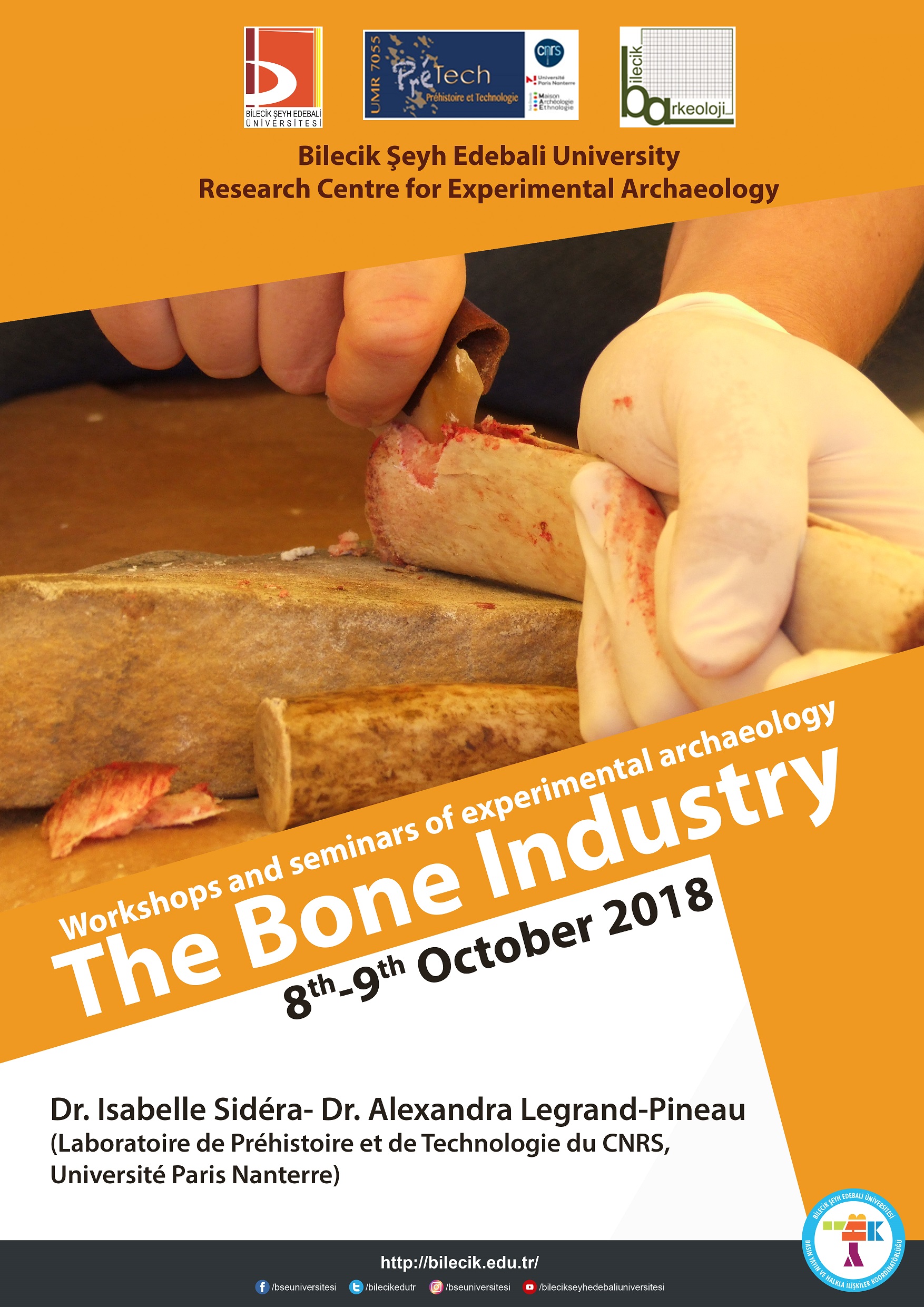 Workshops and Seminars of Experimental Archaeology 1.
Workshops and Seminars of Experimental Archaeology 1.
Research Centre for Experimental Archaeology, Bilecik Şeyh Edebali University
Laboratoire de Préhistoire et de Technologie du CNRS, Université Paris Nanterre
In archaeology, where practice and experimentation are important research components, new approaches and methodologies are continuously developed. In our country we now have a number of interdisciplinary studies on public archaeology, as well as archaeo-parks and open-air museums, and these are an extremely important tool to sensitize the general public regarding issues of cultural heritage.
This notwithstanding, in Turkey there are presently no institutional structures that allow the formation of new researchers or the continuity in practice and education, and therefore experimental archaeology struggles to become a tool for research. One of the main objectives of this project is to offer a session of introduction and formation on experimental archaeology to both Turkish academics and students at the master and doctoral level.
The proposed experiments will be based on the archaeological data, in order to reconstruct the ancient societies, to understand the past socio-economic systems, to shed light on prehistoric manufacturing techniques and to compare them with the present. These include the research methods for the production of all sorts of tools, ranging from stone knapping to metallurgy, from textile making to pottery production, to building construction.
The proposed workshops will focus on different production techniques and will be composed of theoretical and practical sessions; the latter will be followed by local artisans, in order to connect together science and public, ancient and modern technologies.
The experiences and understandings acquired as part of these workshops will fill an important gap in the development of new theoretical models and practical methodologies. These will be in turn employed at a national level within the framework of university teaching of archaeology, one of the most important branches of social sciences.
The results of this project, the first to be proposed in Turkey, will also allow promoting experimental archaeology as a tool to better understand ancient technologies and as a background to research the feasibility of modern products. The proposed project will further allow following the process and the transition from prehistoric to modern technology and thus archaeology also will be integrated in Research and et technological development projects (R & D).
The first stage of this project will be the workshops on bone and lithic industries, to be held for the first time in Turkey at the Bilecik University’s Research Centre for Experimental Archaeology. These workshops will focus on the early stages of bone and stone tools production by ancient human communities, and will take form of theoretical and practical seminaries attended by 10-15 participants, including postgraduate students and academics.
Within this context, the first workshops will be directed by Isabelle Sidéra-Alexandra Legrand-Pineau during Autumn 2018 (bone tools) and Jacques Pelegrin- Pierre Allard during spring 2019 (chipped stone tools). Both researchers are members of the CNRS Laboratory of Prehistory and Technology (Laboratoire de Préhistoire et de Technologie du CNRS), one of the leading centres in research regarding ancient technology and its connection with past socio-economic systems. In addition, contributions to the seminars will be also presented by Turkish academics participating to the project.
The Bone Industry (8th-10th October 2018)

